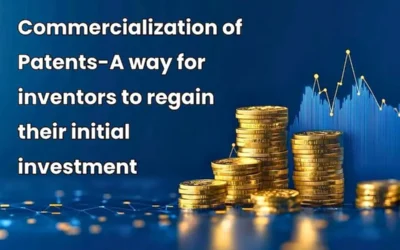
Patent licensing is quickly becoming the future of doing business — not just for protecting innovation, but for expanding markets and opening new revenue sources. Today, however, this field is undergoing a major transformation. With changing global regulations, emerging technologies, and shifting market dynamics, patent licensing is evolving faster than ever, and the Future of patent licensing is unbelievable. Over the past few years, big corporations have been investing heavily in patent strategies, setting the tone for what’s to come. But what does the Future of patent licensing really look like? How does it work, and what trends are shaping its next phase? Keep reading to dive into the world of intellectual property and learn about the latest IP news and trends in India and beyond.
What Does Patent Licensing Mean in India and How Does It Work?
Before diving into the future trends and predictions of patent licensing in India, it’s important to first understand what it actually means and how it works. In simple terms, patent licensing is a business arrangement where the patent holder gives another person or company the right to use their patented invention or technology for specific purposes. It’s becoming a modern way of doing business — one that creates its own ecosystem of innovation and collaboration. This setup benefits both sides: the buyer gets access to a proven technology that can boost their products or operations, while the seller earns revenue or royalties from their invention without giving up ownership.
In India, CGPDTM regulates this process to ensure it follows national laws and international agreements like TRIPS. Over the past few years, patent licensing has gained serious traction in India — especially in technology, pharmaceuticals, and renewable energy — as more businesses realize it’s not just about protecting ideas, but about turning innovation into income.
Why Is It Important to Understand the Future of Patent Licensing Trends and Predictions?
Understanding the trends and predictions in patent licensing is crucial because this field is evolving faster than ever — and staying informed helps businesses, innovators, and investors stay ahead of the curve. Knowing where the market is headed allows companies to make smarter decisions about Patent protection, negotiate better deals, and explore new revenue streams. With global rules changing, new technologies emerging, and AI transforming how patents are managed, understanding these shifts isn’t just helpful — it’s essential for anyone who wants to succeed in the innovation economy.
- Artificial intelligence will play a major role in analyzing patent portfolios, finding licensing opportunities, and automating valuation.
- More industries — especially automotive, telecom, and IoT — will adopt patent pools for simplified and transparent licensing.
- Countries like the UK and members of the EU will continue defining clearer rules for fair and reasonable licensing terms.
- As products become more global, companies will seek multi-country licenses instead of separate national agreements.
- Licensing at the component or module level (for chips, sensors, etc.) will become more common to reduce compliance complexity.
Read Also: What to Do After Receiving a Patent Infringement or Licensing Notice
Conclusion
Patent licensing is no longer just a legal process — it’s a modern business strategy that fuels innovation, growth, and collaboration. As India and the global market continue to evolve with new technologies, AI, and changing IP policies, understanding the latest trends and future predictions becomes essential for businesses of all sizes. Whether you’re a startup looking to expand or an established company seeking new revenue streams, patent licensing offers endless opportunities to turn ideas into impact — and innovation into income.









